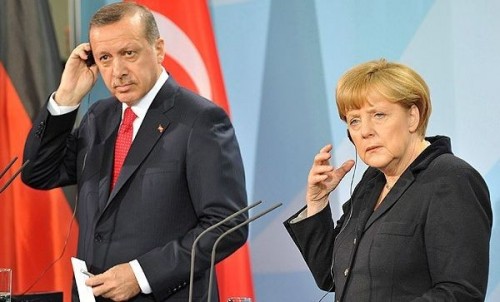Karlheinz Weißmann geht es um die Frage, ob „der Islam unser Feind“ sei, und er faßt nachvollziehbarerweise unter dem Titel „Islamkritiker“ alle Kräfte zusammen, die diese Frage bejahen. Ungeachtet der von ihm durchaus gesehenen Heterogenität der islamkritischen Szene identifiziert er fünf
bestimmte Argumentationsfiguren …, mit denen man sich auseinandersetzen muß, wenn man einschätzen will, ob ihre Feindbestimmung tragfähig ist oder nicht
und unterzieht diese Argumentationsfiguren einer nuancierten Kritik, aufgrund deren er zu dem Ergebnis gelangt, die Islamkritik sei ein Konzept,
das im Grunde unpolitisch ist, weil es eine Feinderklärung abgibt, die sich gegen eine Größe richtet, die als solche gar nicht existiert: der Islam.
Um es vorwegzunehmen: Diese Kritik überzeugt mich nicht, weil sie auf einer Fehleinschätzung sowohl des Islam selbst als auch der Islamkritik beruht. Aber der Reihe nach:
Die erste von Weißmann genannte islamkritische These lautet:
1. Das Problem ist der Islam
Weißmann referiert zutreffend, daß Islamkritiker bereits im Islam selbst – nicht erst im Islamismus und schon gar nicht in externen Faktoren wie Armut, Rassismus, Unterentwicklung und dergleichen – die tiefste Ursache für Unterdrückung und Gewalt in der islamischen Welt wie auch für die Anpassungsunfähigkeit vieler muslimischer Migranten in Europa sehen, und ergänzt:
Viele Islamkritiker beschränken sich darauf, dem Islam ein Entwicklungsdefizit vorzuwerfen, das im Prinzip aufholbar sei, wenn er die Anpassungsbemühungen verstärke und sich konsequenter am Westen ausrichtete. Geert Wilders steht aber auch nicht allein, wenn er … den Koran mit Hitlers Mein Kampf vergleicht …
Die Position, wonach der Islam sich zu einem liberalen „Euro-Islam“ weiterentwickeln müsse – gewissermaßen zu einer islamischen Variante des Käßmannchristentums – gibt es zwar, aber wenn man deren Protagonisten, etwa den aus Syrien stammenden Politologen Bassam Tibi, der islamkritischen Szene zurechnen wollte, müsste man deren Grenzen schon sehr weitläufig ziehen – jedenfalls weiter, als Weißmann selbst sie zieht: Die Verfechter eines „Euro-Islam“ sind sicherlich Islamismuskritiker, würden aber die These vehement zurückweisen, „der“ Islam sei unser Feind.
Deshalb hängt auch Weißmanns Mahnung an die Adresse der Islamkritik in der Luft, es müsse
klarer differenziert werden zwischen der Auffassung, daß der Islam korrigierbar sei, wenn er sich modernisiere und säkularisiere wie das Christentum, und der anderen, daß er das aus prinzipiellen Gründen gar nicht könne.
Tatsächlich ist diese letztere Auffassung in der islamkritischen Szene Konsens; deswegen stimmt es auch nicht, wenn Weißmann schreibt, letztlich neige
die Mehrzahl der Islamkritiker doch dem naiven westlichen Entwicklungsdogma zu, demgemäß alle Gesellschaften sich am Muster des Geschichtsverlaufs orientieren (müssen), den England, Frankreich oder die USA genommen haben.
Richtig ist, daß die starke liberale Strömung innerhalb der Islamkritik den Islam seiner Unvereinbarkeit mit westlich-liberalen Wertmustern wegen ablehnt und dazu neigt, diese Werte für das schlechthin „Gute“ zu halten. Imperialistische Implikationen können sich mit einer solchen Position durchaus verbinden, geschichtsdeterministische aber nicht.
Die Vorstellung eines linear verlaufenden Geschichtsprozesses, der mindestens eine Reformation beinhalten müsse, um von dort aus zu Aufklärung und Liberalismus vorzustoßen, ist aus islamkritischer Sicht bereits deshalb nicht haltbar, weil es Reformationen in der islamischen Welt durchaus schon gegeben hat, nur mit völlig anderen Ergebnissen als in Europa:
„Der Islam wurde … bereits in Medina sowohl theoretisch (im Koran) als auch in der Praxis zu einem sozialen Normensystem mit deutlichen juristischen und politischen Akzenten, ja zu einer Gesellschaftsideologie ausgebaut.
In diesem Sachverhalt liegt der Grund dafür, dass islamische Erneuerungsbewegungen regelmäßig andere Akzente setzen als christliche. Zwar geht in beiden Religionen Erneuerung, Re-form, Re-formation mit dem Versuch einher, einen als korrupt erlebten jeweils gegenwärtigen Zustand durch Rückbesinnung auf einen als ideal gedachten Anfang zu überwinden. Führt dieser Versuch im Christentum zur Betonung der sprichwörtlichen „Freiheit eines Christenmenschen“, … so kann ein Muslim, der im Propheten und seiner medinensischen Gemeinde das Ideal sieht, gar nicht umhin, den Islam in dessen Eigenschaft als soziales Normensystem … zu stärken und zu erneuern. Der in Saudi-Arabien herrschende Wahhabismus, der vielen westlichen Beobachtern als Inbegriff eines rückständigen, traditionalistischen Islam gilt, versteht sich selbst, und dies durchaus begründet, als eine Reformbewegung!“ (M.K.-H., Das Dschihadsystem. Wie der Islam funktioniert. Resch-Verlag Gräfelfing 2010, S.145 f.) [3]
Weißmanns zentraler Kritikpunkt an der These, der Islam selbst sei das Problem, ist allerdings ein anderer, nämlich daß es
unter Islamkritikern eine überstarke Neigung [gebe], den Islam von seinen normativen Vorgaben her zu interpretieren. Aber auch hier besteht wie sonst auf der Welt eine Diskrepanz zwischen Vorschrift und Alltagsrealität. Faktisch waren die Vorgaben des Koran oder der islamischen Rechtsregeln nur in bestimmten Epochen in dem Maße und der Totalität bestimmend, die hier als üblicher Fall postuliert werden.
Also vier Thesen:
1. Islamkritiker interpretierten den Islam von seinen normativen Vorgaben her.
2. Deshalb unterstellten sie eine rigide und totale Durchsetzung der Scharia als Normalfall in islamischen Gesellschaften.
3. Diese Unterstellung sei falsch, da sie der tatsächlich vorhandenen Vielfalt islamischer Staats-, Gesellschafts- und Lebensmodelle widerspreche und zudem ahistorisch die Unterschiede zwischen verschiedenen Epochen zugunsten eines statischen und fiktiven Modell-Islam vernachlässige und damit faktenwidrig Norm und Realität gleichsetze.
4. Da diese Konsequenzen falsch seien, sei die Prämisse widerlegt und die von Islamkritikern bevorzugte Interpretation des Islam von seinen normativen Vorgaben her „überstark“.
Ad 1: In der Tat ist der Ausgangspunkt islamkritischer Analysen regelmäßig die Beobachtung, daß das empirische Verhalten muslimischer Gemeinschaften (Völkern, Staaten, Parallelgesellschaften, Organisationen) in hohem Maße mit dem Normen- und Wertesystem korrespondiert, das im Koran verankert, vom Propheten exemplarisch vorgelebt, von der islamischen Rechtstradition zu einem ausgeklügelten System verdichtet und in dieser Form für Muslime sozial verbindlich gemacht wurde – und daß es in dem Maße, wie es damit korrespondiert, den Erwartungen zuwiderläuft, die wir vom Standpunkt eines europäischen – christlich bzw. liberal geprägten – Wertesystems an Muslime richten.
Diese Beobachtung ist schlicht und einfach zutreffend, und sie wird nicht dadurch widerlegt, daß ja nicht alle Muslime sich in gleicher Weise und im gleichen Maße an diesen Normen orientieren. Dieser beliebte Einwand ist deswegen irrelevant, weil die erkenntnisleitende Fragestellung nicht lautet, ob die Muslime unsere Feinde, sondern ob der Islam unser Feind sei. Dieser Gesichtspunkt wird weiter unten noch vertieft werden.
Zur Erklärung dieser weitgehenden Übereinstimmung von Verhaltensnorm und tatsächlichem Verhalten können prinzipiell zwei Modelle dienen: Das eine, das ich hiermit etwas respektlos das naive nennen möchte, lautet, daß Muslime sozusagen Allahs Marionetten seien, weil sie an die islamische Lehre glaubten; woraus die Forderung resultiert, ihnen diesen Glauben auszutreiben.
Das andere Erklärungsmodell, das von weiten Teilen der islamkritischen Szene mindestens implizit geteilt wird, habe ich so umschrieben:
„Niemand, der mit der Materie vertraut ist, und schon gar kein Muslim, wird abstreiten, dass der Islam ein System ist, dass für alle Bereiche des privaten und gesellschaftlichen Lebens gleichermaßen verbindlich ist. (…)
Daraus ergibt sich freilich, dass die Rolle der Religion im Gesamtgefüge islamischer Gesellschaften eine andere ist als im Westen … . Der Islam setzt den Menschen nicht nur in Beziehung zum Jenseits und definiert, was Gut und Böse ist – das tun andere Religionen auch –, er definiert auch, was im legalen Sinne Recht und Unrecht, im politischen Sinne legitim und illegitim, im empirischen Sinne wahr und unwahr ist.
Indem der Islam die von ihm dominierten Gesellschaften in dieser Breite und Tiefe durchdringt, prägt er notwendig auch das System der kulturellen Selbstverständlichkeiten, d.h. die Vor-Annahmen über Wahrheit, Gerechtigkeit, Moral, Ethik, Logik, Gewalt, Geschichte und Gesellschaft – also jene Prämissen, die im Sozialisierungsprozess verinnerlicht werden und dem eigentlich politischen Denken vorausgehen. Diese Vorannahmen verdichten sich zu einer in islamischen Gesellschaften sozial erwünschten Mentalität.“
(Dschihad-System, S. 283)
Dieses Erklärungsmodell schiebt der Illusion einer „Re-education“ von Muslimen, gleich ob gutmenschlich durch „Dialog“ oder islamkritisch durch autoritären Oktroi durchgesetzt, einen Riegel vor. Es führt zu der Forderung, die Bildung bzw. Ausweitung islamischer Parallelgesellschaften durch eine geeignete Einwanderungspolitik – oder vielmehr Aussperrungspolitik – zu verhindern.
Ad 2: Beide Modelle führen allerdings – wenn auch auf theoretisch etwas unterschiedlichen Wegen – zu dem Befund, daß die Freiheit von Nichtmuslimen, den Forderungen der Scharia zuwiderzuhandeln, in dem Maße schrumpft, wie das islamische Normensystem an gesellschaftlicher Durchsetzungsmacht gewinnt, und daß ein für uns unerträgliches Maß an Unterdrückung und Gewalt nicht erst dann erreicht wird, wenn die Scharia formal etabliert und in „Totalität“ durchgesetzt wird, sondern bereits dann, wenn Muslime auf der Alltagsebene ihre Spielregeln diktieren, die von eben diesem Normen- und Wertesystem geprägt sind.
Ad 3: Die beobachtbaren Unterschiede zwischen verschiedenen muslimischen Gesellschaften unterschiedlicher Länder und Epochen spielen unter diesem Gesichtspunkt keine Rolle, weil die Islamkritik eben nicht von der Frage ausgeht, ob jegliche Islamisierung zugleich eine Talibanisierung sei, sondern ob der Islam unser Feind ist, und was sein Vordringen für uns bedeutet. Für uns wäre aber bereits eine verdünnte Scharia unerträglich, und zwar auch dann, wenn sie nicht vom Staat, sondern von einer muslimisch dominierten Gesellschaft durchgesetzt würde.
Ad 4: Die „Neigung [von Islamkritikern], den Islam von seinen normativen Vorgaben her zu interpretieren“, ist daher alles andere als „überstark“: Der Zusammenhang von Norm und Verhalten wird nicht nur als solcher richtig gesehen, sondern auch hinsichtlich seiner Konsequenzen korrekt eingeschätzt.
Die zweite Argumentationsfigur, die Weißmann aufs Korn nimmt, lautet:
2. Es besteht kein Unterschied zwischen Islam und Islamismus
Er präzisiert diese These – die in dieser Grobschlächtigkeit in der Tat von kaum jemandem vertreten wird – dahingehend, daß Islamkritiker auf die starke Anfälligkeit selbst äußerlich gut integrierter Muslime für islamistische Indoktrination bis hin zur Gewaltbereitschaft hinweisen. Er fährt fort,
Deren Erfolg kann man [nach Meinung der Islamkritiker] nur erklären, wenn man davon ausgeht, daß Islamisten im Prinzip nichts anderes tun, als den Islam selbst ernst zu nehmen.
und wendet dagegen ein:
Selbst eine ihrem Gegenstand so kritisch gegenüber stehende Islamwissenschaftlerin wie Christine Schirrmacher beharrt darauf, den Islamismus als eine in erster Linie politische, nicht religiöse, Konzeption zu definieren.
Wenn das Wort „kritisch“ in diesem Zusammenhang nur bedeuten soll, daß Christine Schirrmacher zur offiziösen Schönfärberei Distanz hält, bin ich einverstanden. Freilich wird damit nur etwas umschrieben, was sich für Wissenschaftler von selbst verstehen sollte; eine Gewähr für die Richtigkeit ihrer Thesen oder auch nur für die Fruchtbarkeit und Erkenntnisträchtigkeit ihres Begriffssystems liegt darin noch lange nicht. Tatsächlich folgt Weißmann Schirrmacher in eine begriffliche Falle, nämlich die unreflektierte Anwendung westlicher Begriffssysteme auf nichtwestliche Gesellschaften:
„Die Schwierigkeiten, den Islam auf den soziologischen Begriff zu bringen, haben weniger mit der Vielschichtigkeit des zu beschreibenden Phänomens, also des Islam zu tun, als vielmehr mit der Unzulänglichkeit der ihn beschreibenden Begriffe. Wir sind es gewöhnt, ‚Religion‘, ‚Politik‘, ‚Kultur‘ und ‚Recht‘ als Bezeichnungen voneinander getrennter und gegeneinander autonomer Lebensbereiche aufzufassen. Diese Begriffe sind aber nicht in einem historischen und gesellschaftlichen Vakuum entstanden, und ob sie universell anwendbar sind, ist durchaus fraglich.
Sie sind dazu entwickelt worden, eine ganz bestimmte Gesellschaft zu beschreiben – unsere eigene, funktional differenzierte westliche Gesellschaft –, weswegen sie deren Angehörigen, also uns, auch ohne weiteres einleuchten. Es gibt aber a priori keinen Grund zu der Annahme, dass dieses Begriffsystem zwangsläufig ebenso gute Dienste bei der Analyse nichtwestlicher Gesellschaften leisten müsse; es gibt sogar erstklassige Argumente dagegen:
Die Unterscheidung von Religion und Politik etwa, die uns so selbstverständlich erscheint, dass wir nicht mehr darüber nachdenken, spiegelt sich beim Reden über den Islam in dem antithetischen Gebrauch der Begriffe ‚Islam‘ und ‚Islamismus‘: das eine eine Religion, das andere etwas (nach unserem Verständnis) vollkommen anderes, nämlich eine politische Ideologie, die den Islam bloß ‚missbraucht‘, und zwar als Arsenal, aus dem sie sich mit Propagandaslogans versorgt. Dass der Islamismus zum Islam in derselben Weise gehören könnte wie der Rüssel zu besagtem Elefanten, ist für viele Menschen buchstäblich un-denkbar, weil es in ihrem Begriffssystem nicht vorgesehen ist.
(…)
Kein erstzunehmender Islamexperte (und noch weniger die Muslime selbst) würde bestreiten, dass der Islam sich selbst als umfassende Lebensordnung versteht – also nicht etwa als Religion, wie wir sie uns vorstellen, die man auch im stillen Kämmerlein praktizieren könnte, deren Befolgung Privatsache wäre, und die sich vor allem auf die Gottesbeziehung des Einzelnen auswirkt. Der Islam durchdringt – seinem eigenen Anspruch nach – auch Recht, Politik, Kultur, Wissenschaft und überhaupt jeden Lebensbereich. Es gibt im Islam keinen Vorbehalt nach Art des neutestamentlichen ‚So gebt dem Kaiser, was des Kaisers ist, und Gott, was Gottes ist.‘ (Mt 22,21) Es gibt keine islamfreie Zone, zumindest soll es keine geben.
Dies, wie gesagt, wird auch zugestanden, und dass der Islam keine Säkularisierung erlebt hat, gehört mittlerweile fast schon zur Allgemeinbildung. Bisher fühlte sich aber kaum einer berufen, die soziologischen Konsequenzen dieses unbestrittenen Sachverhaltes zu analysieren. Es scheint auch niemandem aufzufallen, wie inkonsequent es ist, das Fehlen der Säkularisierung islamischer Gesellschaften festzustellen, diese Gesellschaften aber in Begriffen zu beschreiben, die eine solche Säkularisierung gerade voraussetzen.“
(a.a.O., S. 10 f., 13)
Eine Gesellschaft, deren leitendes Normen- und Wertesystem die religiöse Verankerung auch von Politik und Recht fordert, bringt mit Notwendigkeit regelmäßig Kräfte hervor, die damit Ernst machen – in einem modernen Kontext also Islamisten –, und zwar typischerweise dann, wenn der Islam als Grundlage der gesellschaftlichen Ordnung noch nicht etabliert ist, oder wenn er in dieser Hinsicht angefochten wird. Dies ist nicht nur ein deduktiv gewonnener theoretischer, sondern auch ein empirischer Befund: Die Intoleranz gegenüber Nichtmuslimen und „schlechten“, d.h. nonkonformen Muslimen, und die Rigidität, mit der die islamischen Normen durchgesetzt werden, ist regelmäßig dann am größten,
- wenn die gesellschaftliche Ordnung zusammengebrochen ist und rekonstituiert werden muss, wie heute in den gescheiterten Staaten Afghanistan und Somalia, oder
- wenn Muslime noch in der Minderheit, aber bereits mächtig genug sind, die Islamisierung nichtmuslimischer Gesellschaften zu erzwingen, wie es in den frühen Phasen sowohl der arabischen als auch der türkischen Expansion der Fall war (ein Aspekt, der uns zu denken geben sollte, zumal wenn wir sehen, daß der Islam in Teilen der muslimischen Parallelgesellschaften in Europa um einiges rigider interpretiert wird als in den meisten Herkunftsländern der Migranten), oder
- wenn die islamischen Gesellschaften von außen durch nichtmuslimische Mächte bedroht werden, militärisch etwa während der Kreuzzüge, wirtschaftlich, kulturell und militärisch durch die westliche Expansion seit dem 19.Jahrhundert.
Vom Standpunkt einer ganz bestimmten Ideologie kann Islamismus freilich nichts mit dem Islam und der mit ihm zusammenhängenden soziologischen Eigengesetzlichkeit muslimischer Gesellschaften zu tun haben, weil sie mißliebige gesellschaftliche Erscheinungen, eben auch den Islamismus, bereits aus ideologischem Prinzip auf „Unterdrückung, Armut und Not“ zurückführt. Weißmann faßt Schirrmachers Ausführungen zu den Ursachen des Islamismus so zusammen:
Er [der Islamismus] sei eine „totalitäre Ideologie“ mit einem im Kern „utopischen Weltbild“, die auf die Unterdrückung, die Armut und die Not in den Gebieten des Nahen Ostens seit dem Ende des 19. Jahrhunderts mit dem Angebot eines „ganzheitlichen Islam“ reagierte.
Wie sie mit diesem Modell den Erfolg von Islamisten in Europa erklären will, wo Muslime weitaus mehr Rechte und mehr Wohlstand genießen als in den meisten ihrer Herkunftsländer, wird wohl Schirrmachers – und, da er sie zustimmend zitiert, auch Weißmanns – Geheimnis bleiben. Ich gestehe, daß ich die Bedenkenlosigkeit und Naivität einigermaßen befremdlich finde, mit der Weißmann, ein profilierter Konservativer, anscheinend im Vertrauen auf „die Wissenschaft“, ein Erklärungsmuster übernimmt, das erkennbar in den Prämissen linker Ideologie verwurzelt ist.
Weißmann zufolge, der ihr auch hier folgt, weist Schirrmacher die Argumentation der Islamkritiker, wonach der Islamismus nur konsequent praktiziere, was der Islam schon immer gefordert habe, (nämlich die Einheit von Religion und Politik unter dem Gesetz der Scharia) und deshalb notwendig aus ihm hervorgehe, mit dem Argument zurück,
daß die Mehrzahl der Moslems … von diesem Konzept weit entfernt sind.
Das islamistische Potenzial sei mit circa 10 Prozent der Heranwachsenden zwar erheblich, aber dennoch nur minoritär.
Abgesehen davon, daß schlechterdings nicht zu erkennen ist, inwiefern Feststellungen dieser Art die These widerlegen sollen, der Islam bringe den Islamismus als solchen mit Notwendigkeit hervor, ist der zentrale Denkfehler dieses Arguments die Gleichsetzung von Quantität und Qualität – so, als hinge die Durchschlagskraft radikaler ideologischer Positionen vom Bevölkerungsanteil ihrer Anhänger ab; nebenbei gesagt ein Denkfehler, der einem nur vom typisch liberalen Standpunkt eines individualisierenden Denkens unterlaufen kann, das die Dynamik sozialer Beziehungen ausblendet (und deshalb aus Weißmanns Feder merkwürdig inkonsistent wirkt):
Allein ihre eigene nicht abreißende Kette von Niederlagen in den letzten fünfzig Jahren sollte deutsche Konservative hinreichend darüber belehrt haben, daß kleine radikale Minderheiten sehr wohl in der Lage sind, ihre Vorstellungen auch gegen eine widerstrebende Mehrheit durchzusetzen, wenn diese Mehrheit nicht aktiv gegensteuert, weil und sofern sie, die Minderheit, dabei einen bestehenden ideologischen Konsens zu ihren Gunsten umdeutet und ausnutzt. Ein solcher Grundkonsens, und zwar über die Geltung islamischer Normen, besteht in den muslimischen Parallelgesellschaften aber sehr wohl; diese Gemeinschaften bilden den Resonanzboden, ohne den die Islamisten in der Tat nicht erfolgversprechend agieren könnten; und fatalerweise liegt zudem die Definitionsmacht, was „die Muslime“ wollen und „der Islam“ fordert, in den Händen von Organisationen, die meist selbst islamistisch sind (und selbst die, die das nicht sind, weil sie zum Beispiel ethnisch definierte Interessen vertreten, lassen sich mühelos vor den Karren der Islamisten spannen).
Des weiteren hängt die Durchsetzungsfähigkeit gerade von Islamisten nicht zuletzt von ihrer Gewaltbereitschaft ab, die als hemmender und einschüchternder Faktor ins Kalkül nichtmuslimischer Akteure – etwa von Polizeibeamten oder Politikern, aber auch von einfachen Bürgern – einfließt.
Und schließlich werden islamische Standards – etwa, Muslime nicht zu „provozieren“, als Frau oder Mädchen islamischen Vorstellungen von „Sittlichkeit“ zu entsprechen, Muslimen Tribute zu entrichten, gewaltsame Machtdemonstrationen von Muslimen zu dulden – durchaus nicht nur und nicht einmal überwiegend von Islamisten durchgesetzt, sondern vor allem von Kriminellen, denen dabei aber jedes Unrechtsbewußtsein fehlt, weil ihr Verhalten ja „nur“ gegen das Recht der „Ungläubigen“ verstößt und daher in ihrer muslimischen Umgebung aufgrund von deren sozialisatorischer Prägung keine energische soziale Mißbilligung erfährt.
Dritte von Weißmann angefochtene These:
3. Es gibt eine Kontinuität der islamischen Aggression
Weißmann zitiert in diesem Zusammenhang Bernard Lewis, der die fortschreitende Islamisierung Europas als „dritte Angriffswelle der islamischen Expansion“ (nach der arabischen und der türkisch-osmanischen) deutet, und wendet dagegen ein,
daß die Migration kein Teil einer islamischen Strategie war. Wer als Arbeiter oder als Flüchtling in den Westen ging, tat das aus einer individuellen Motivation, kaum je mit dem Ziel, die umma auszuweiten. (…) Die Islamisierung Europas erweist sich insofern als Nebeneffekt eines Bevölkerungsaustauschs, nicht als Ergebnis einer langfristigen Konzeption. Es soll damit gar nicht bestritten werden, … daß vom türkischen Staatsislam bis zu dschihadistischen Gruppen alle möglichen Organisationen sich die Schwäche des liberalen Systems zu Nutze machen … , aber die Annahme, es gäbe dahinter so etwas wie einen Masterplan, geht an den Realitäten offensichtlich vorbei.
Weißmann behauptet also, die muslimische Massenmigration sei nicht als Dschihad zu werten, und begründet dies unter anderem damit, dass es an ihrem Beginn, also um 1960, keinen islamischen „Masterplan“ zur Islamisierung Europas gegeben habe. Dieses Argument ist insofern eine glatte Themaverfehlung, als es bestenfalls die Frage beantwortet, ob der Islam 1960 unser Feind war, nicht aber die, um die es geht, nämlich, ob er es jetzt ist.
Tatsache ist, dass das Ziel der Islamisierung Europas schon in den siebziger Jahren offen verkündet worden ist, daß in dieser Zeit islamistische Organisationen, speziell aus dem Dunstkreis der Muslimbruderschaft, ausgeklügelte Strategien zur Unterwanderung der europäischen Gesellschaften vorgelegt haben, und daß heute unter praktisch allen maßgeblichen islamistischen Strategen und ihren Organisationen Konsens über die Grundzüge dieser Strategie besteht. Dabei agieren diese Organisationen aber nicht im luftleeren Raum, sondern kalkulieren das aufgrund islamischer Sozialisation erwartbare Verhalten (ohne das ihre Strategien gar nicht funktionieren könnten) ihrer Glaubensbrüder an der Basis als selbstverständliche Vorgabe ein.
Gerade dieses Verhalten von Ali Normalmuslim ist der Dreh- und Angelpunkt dieser Strategien, und dies nicht etwa deshalb, weil alle Muslime glühende Dschihadisten wären, sondern gerade deshalb, weil sie das gar nicht zu sein brauchen, um den gewünschten Effekt zu erzielen. Weißmanns Überlegungen, sofern sie auf die individuellen Motive von muslimischen Einwanderern abstellen, taugen schwerlich als Argument gegen eine Islamkritik, deren Pointe gerade darin liegt, daß der Dschihad im Islam strukturell verankert und damit von den Kontingenzen individueller Motivlagen unabhängig ist.
Konkretisieren wir dies an einigen Beispielen:
Es ist allgemein bekannt, daß türkische Einwanderer sich ihre Ehepartnerinnen sehr häufig in der Türkei suchen und sie dann nach Deutschland holen, weil sie davon ausgehen, daß solche Frauen ein traditionell islamisches Wertemuster mitbringen und nicht von westlichen Ideen angekränkelt sind. Mit Dschihadismus hat dies auf den ersten Blick nichts zu tun; das individuelle Motiv, das hinter einem solchen Verhalten steht, dürfte in den meisten Fällen der verständliche Wunsch sein, eine harmonische Ehe zu führen, wozu eben auch gemeinsame sittlich-religiöse Werte gehören. Dies bedeutet freilich zugleich, daß ein anderes Motiv, nämlich der Wunsch, in Harmonie mit den Erwartungen der (deutschen) Gesellschaft zu leben, keine wesentliche Rolle spielt.
Diese Ablehnung sozialer Erwartungen, die von Nichtmuslimen an Muslime gerichtet werden, ist als Norm kulturell verankert und nicht zwangsläufig vom individuellen Glauben abhängig. Daß nicht jeder Einzelne von solchen Normen gleichermaßen stark und in gleicher Weise geprägt ist (wie oben schon erwähnt), ändert nichts an dem Resultat, das sich ergibt, wenn wir nicht den einzelnen Muslim, sondern die islamische Gemeinschaft als Ganze in den Blick nehmen. Wir haben es hier mit der unmittelbaren Wirkung kulturell verinnerlichter islamischer Normen zu tun, insbesondere dem Gebot, zu Nichtmuslimen keine „sozialen Beziehungen zu unterhalten, die die Gefahr des Abfalls vom oder des Verrats am Islam mit sich bringen, ganz gleich, ob diese Gefahr auf emotionaler Nähe, politischer Abhängigkeit oder rechtlicher Bindung basiert“ (Dschihad-System, S.116).
Es soll also alles unterlassen werden, was die innermuslimische Solidarität im Verhältnis zu Nichtmuslimen beeinträchtigt, und dies gilt auch und gerade für die politische Solidarität. Für Muslime, auch die kritischen unter ihnen, ist es demgemäß nahezu unmöglich, eine nichtmuslimische Nation als ihre eigene in dem Sinne zu betrachten, daß sie sich in politischen Fragen an deren Lebensinteressen (und nicht an den Interessen ihrer jeweiligen muslimischen Herkunftsnation) orientierten. Dies ist mitnichten eine Selbstverständlichkeit, wie das Beispiel der Nachkommen von Hugenotten und polnischen Migranten lehrt; es ist eine muslimische Besonderheit.
Dort aber, wo Muslime im Westen sich einen nichtmuslimischen Ehepartner suchen, also bei gemischtreligiösen Paaren, die es ja auch gibt, ist der muslimische Partner in der Regel der Mann. Wiederum ein Sachverhalt, bei dem man über individuelle dschihadistische Motive bestenfalls fruchtlos spekulieren kann, dessen Verwurzelung im islamischen Normensystem aber offen zutage liegt:
„Ein häufig übersehener Aspekt des islamischen Rechts liegt in den Regeln darüber, wer wen heiraten darf: Frauen dürfen nämlich unter keinen Umständen ‚Ungläubige‘ heiraten, während Männer das durchaus dürfen. Zumindest, soweit die ‚Ungläubigen‘ zu den ‚Schriftbesitzern‘ gehören, also Christinnen oder Jüdinnen sind.“ (Dschihad-System, S.129)
Diese Norm ist eine Dschihad-Norm, hat historisch auch in diesem Sinne funktioniert und ihren Teil zur Verdrängung nichtmuslimischer Gemeinschaften beigetragen:
„Eine Gemeinschaft wie die islamische …, die [das] Exogamieverbot für Männer aufhebt, für Frauen aber nicht, betreibt nicht Konsolidierung, sondern demographische Expansion … : Wer die eigenen Mädchen nur innerhalb der eigenen Gemeinschaft verheiratet, die der anderen Gruppen aber wegheiratet und dafür sorgt, dass deren Kinder die Religion des Vaters annehmen (was mit einer gewissen Selbstverständlichkeit unterstellt wird), sorgt dafür, dass die anderen Gruppen durch Osmose langsam, aber sicher verschwinden.“ (Dschihad-System, S.130)
Ich zitiere diese Beispiele, um zu illustrieren, wie irreführend es ist, von „Dschihad“ nur dort zu sprechen, wo irgendwelche „Masterpläne“ verfolgt werden:
„Wer … in einem verschwörungstheoretischen Sinne nach dem großen Strippenzieher sucht, wird enttäuscht werden. Der Islam hat dergleichen nicht nötig, weil die Strippen schon vor eintausendvierhundert Jahren vom Propheten Mohammed – Muslime glauben freilich: von Allah selbst – gezogen worden sind.“ (Dschihad-System, S.287).
Der Islam ist nicht deshalb ein Dschihadsystem, weil alle Muslime Islamisten wären und im Kampf für die Ausbreitung des Islam ihren Lebenssinn suchen würden – dies ist offensichtlich nicht der Fall, auch wenn der Islam auch solche Menschen mit Notwendigkeit hervorbringt, sie eine wichtige Rolle im Dschihad spielen und ihre Anzahl erschreckend hoch ist –, sondern weil die islamischen Sozialnormen so aufeinander abgestimmt sind, daß selbst ihre im Einzelfall vielleicht halbherzige Befolgung, sofern sie nur als Normalfall unterstellt werden kann, die islamische umma in die Lage versetzt, nichtmuslimische Völker unter Druck zu setzen und gegebenenfalls auch zu verdrängen.
Eine liberal-individualisierende Betrachtungsweise freilich, die den Islam nicht als Grundlage einer Gesellschaftsordnung betrachtet, sondern als lediglich individuellen Glauben, der folglich nur in den Köpfen von Muslimen existieren, nicht aber in sozialen Strukturen objektiviert sein kann – eine solche Betrachtungsweise kann „den Islam“ als soziales System und seine Dynamik gar nicht in den Blick bekommen. Wo aber bereits Prämisse ist, daß es den Islam im Grunde nicht gibt, sondern nur viele Muslime, kann als Schlußfolgerung auch nichts anderes herauskommen.
Genau dies ist auch der Punkt, an dem Weißmanns Kritik an der vierten islamkritischen These scheitert:
4. Der Islam bildet eine Einheit
Die Annahme eines besonderen islamischen Gefahrenpotentials bezieht ihre Plausibilität selbstverständlich auch aus der Vorstellung, daß der Islam als Einheit agiert. Soweit diese Annahme nicht einfach auf Ignoranz beruht, spielt vor allem die Geopolitik eine Rolle für entsprechende Argumente. (…) Aus der Sicht der Geopolitik erscheinen selbstverständlich auch die Hypothesen Samuel Huntingtons in bezug auf den „Kampf der Kulturen“ besonders plausibel.
Es ist zutreffend, daß insbesondere die liberalen Teile der islamkritischen Szene, die sich besonders mit „dem Westen“ und dessen Führungsmacht USA identifizieren, Huntingtons These viel abgewinnen können. Weißmann scheint aber nicht Betracht zu ziehen, daß man die Akteurseigenschaft des Islam auch ohne Rückgriff auf geopolitische Denkfiguren bejahen kann. Wer solches tut, ist laut Weißmann nicht etwa Verfechter einer alternativen Theorie, sondern schlicht ein Ignorant. Da ich selbst der Geopolitik eher abhold bin, muß meine Neigung zur Islamkritik daher wohl auf meine notorische Ignoranz [4] zurückzuführen sein.
Weißmann weist Theorien, die den Islam als Einheit auffassen, mit zwei zentralen Argumenten zurück:
Erstens gebe es auch zwischen muslimischen Makroakteuren mannigfache Konflikte:
Unbestreitbar ist es jedenfalls so, daß die drei Hauptträger der islamischen Renaissance – zuerst die Iraner, dann die Araber, zuletzt die Türken – unterschiedliche Generallinien verfolgen und in einem, gelegentlich zu militärischen Konflikten führenden, Konkurrenzverhältnis zueinander stehen.
Zweitens verfüge der Islam über kein entscheidungsfähiges Zentrum, dessen es aber bedürfte, damit er eine Feinderklärung aussprechen und durchfechten könne:
Tatsächlich ist der Islam seit den Tagen der ersten Kalifen kein Ganzes mehr gewesen, er besitzt keine Kirchenstruktur und keinen Klerus, und es gibt permanent massive Auseinandersetzungen zwischen verschiedenen islamischen Konfessionen und Fraktionen …
Weil dies so sei, so folgert Weißmann weiter unten in seinem Fazit, könne er auch nicht sinnvollerweise Gegenstand einer Feinderklärung sein, weil eine solche sich
gegen eine Größe [richten müßte], die als solche gar nicht existiert: der Islam. Feind kann aber nur sein, wer, mit Carl Schmitt, als eine „der realen Möglichkeit nach kämpfende Gesamtheit von Menschen auftritt“… Und das ist nicht der Fall.
Halten wir zunächst fest, daß diese Argumentation, sofern sie auf die Nichtexistenz einer kirchenartigen Hierarchie und überhaupt eines Entscheidungszentrums abstellt und bereits deswegen dem Islam die Akteurseigenschaft abspricht, an derselben Schwäche krankt, die uns bereits oben im Zusammenhang mit den Thesen Schirrmachers aufgefallen ist, nämlich der unreflektierten Übertragung westlicher Begriffe und Ordnungsvorstellungen auf eine Gesellschaft, die auf ganz anderen kulturellen Voraussetzungen basiert, und die daher nicht unbedingt in unseren Begriffen sinnvoll zu beschreiben ist. Wir sind es – zweifellos auch vor dem Hintergrund unserer liberalen Rechtstraditionen, bei Weißmann auch einer konservativen Neigung zum Etatismus – gewöhnt, als „Akteure“ (neben Einzelpersonen) nur solche sozialen Systeme aufzufassen, die ein relativ hohes Maß an formaler Organisation aufzuweisen haben, also etwa Staaten, Kirchen, Parteien, Unternehmen etc., und hierarchisch organisiert sind.
Dabei ist bereits mit Blick auf unsere eigene Gesellschaft durchaus fraglich, ob sich die in ihr existierenden Machtstrukturen und Konfliktlagen auf der Basis eines solchen Vorverständnisses noch sinnvoll beschreiben lassen: Nach dessen Logik nämlich wären auch die politische Linke, die globalen Eliten, die politische Klasse oder das System der etablierten Medien nicht als Akteure (und demgemäß auch nicht als Feinde) anzusprechen, da sie in sich jeweils nicht zentralistisch und hierarchisch, sondern netzartig strukturiert und zudem durch starke interne Konkurrenzverhältnisse geprägt sind. Wer sich freilich nur auf diese Konkurrenzmechanismen und internen Interessenkonflikte konzentriert, wird immer wieder überrascht sein, wie sehr diese angeblichen Nicht-Akteure im Verhältnis zu ihrer Umwelt zu koordiniertem Handeln in der Lage sind, das kaum weniger effektiv ist, als wenn es durch eine zentrale Instanz gesteuert würde. Gerade die politische Rechte, die von all diesen Systemen als Feind markiert und erfolgreich bekämpft wird, hat wenig Anlaß, die Feindfähigkeit solcher Kollektivakteure von der Existenz jeweils zentraler Entscheidungsinstanzen abhängig zu machen.
Darüberhinaus bedarf Carl Schmitts Definition, wonach Feind nur sein könne, wer als „der realen Möglichkeit nach kämpfende Gesamtheit von Menschen auftritt“, der Präzisierung und Erläuterung: Damit ist nämlich nicht gemeint, daß etwa buchstäblich jeder Staatsbürger einer kriegführenden Macht, womöglich einschließlich der Säuglinge und Greise, auch faktisch kämpfen müsse, und nicht einmal, daß jeder Soldat ein Kämpfer sein müsse. Die Existenz etwa von Befehlsverweigerung, Sabotage, Spionage, Feigheit, Desertion etc., allgemein gesprochen die individuelle Mißachtung von kampfbezogenen Verhaltenserwartungen beeinträchtigt zwar den Kampfwert einer Streitmacht, stellt aber ihre Fähigkeit, eine Feinderklärung durchzufechten, nicht prinzipiell in Frage, solange die Erfüllung als Normalfall unterstellt werden kann und daher koordiniertes Handeln möglich ist. Dies hat auch nichts mit individuellen Motivationen zu tun: Es spielt keine Rolle, ob der Soldat kämpft, weil er den Sieg seiner Armee wünscht, oder weil er sicherstellen möchte, daß ihm sein Sold regelmäßig ausgezahlt wird, oder weil er Karriere machen möchte (Ganz allgemein sind soziale Systeme in dem Maße erfolgreich, wie sie individuelle Motive vor den Karren des Gemeinwohls spannen können und sich damit von der Gemeinwohlorientierung des Einzelnen unabhängig machen.). Und schließlich versteht es sich von selbst, daß nur dort gekämpft wird, wo auch gekämpft werden kann, im Zweifel also an der Front.
Nach Carl Schmitt ist eine politische Einheit, wer eine Feinderklärung aussprechen und durchfechten kann. Theorieimmanent ist es keineswegs erforderlich, daß die Feinderklärung stets konkret und situationsbezogen ausgesprochen wird; eine abstrakte und konditionierte Feinderklärung genügt vollkommen, sofern sichergestellt ist, daß bei Eintritt der Bedingungen der Kampf auch tatsächlich sinnvoll koordiniert geführt wird. Dies ist beim Islam der Fall, dessen leitender Gedanke die Feinderklärung gegen alle Ungläubigen ist (die freilich nur dort konkret werden kann, wo muslimische mit nichtmuslimischen Akteuren tatsächlich in der Weise in Berührung kommen, daß sie sinnvollerweise kämpfen können – wo also so etwas wie eine Front existiert), und dessen gesamtes Normensystem darauf hin optimiert ist, muslimische zur Verdrängung von nichtmuslimischen Gruppen zu befähigen, mit denen sie im selben sozialen Raum zusammentreffen; auf eine ausgeprägt dschihadistische Motivation jedes einzelnen Muslims kommt es dabei genauso wenig an wie auf die strikte Normbefolgung aller Muslime.
Die Nichtexistenz eines Entscheidungszentrums ist dabei sogar ein Vorteil, weil der Islam dadurch in seiner Eigenschaft als politische Einheit nicht durch die Korruption eines solchen Zentrums in der Weise kompromittiert werden kann, wie es den europäischen Nationen durch den Verrat ihrer Eliten zur Zeit widerfährt. Selbstverständlich gibt es auch in der islamischen Welt zuhauf korrupte Machthaber, deren Verhalten weit entfernt von einem islamischen Ideal ist, indem sie zum Beispiel westlich inspirierte Reformen durchsetzen, sich mit westlichen Mächten verbünden, Frieden mit Israel schließen oder die Gleichberechtigung von Angehörigen religiöser Minderheiten garantieren; damit stürzen sie aber ihre Herrschaft in tiefe Legitimitätskrisen. Allein das Ausmaß an diktatorischer Gewalt, die sie anwenden müssen, um die Opposition der Gesellschaft gegen diesen Verrat am Islam unter Kontrolle zu halten, dokumentiert freilich die Stärke des Islam und gerade nicht seine Nichtexistenz als politische Einheit.
Was diese Einheit konstituiert und aufrechterhält, ist nicht der darauf gerichtete Wille eines Zentrums, sondern die gemeinsame, religiös fundierte, aber kulturell und sozialisatorisch verinnerlichte Bezugnahme der islamischen Gemeinschaft auf ein Normensystem, das die wechselseitigen Verhaltenserwartungen innerhalb muslimischer Gesellschaften strukturiert, dadurch zu einer objektiven sozialen Gegebenheit wird, zu der muslimische Akteure sich verhalten müssen, und ihrem Verhalten im Zweifel die Richtung weist, die der Konsolidierung der politischen Einheit und ihrer Konfliktfähigkeit nach außen dient.
Wenn wir hierzulande beobachten, daß Muslime häufig und sogar typischerweise ein Verhalten zeigen, das dem Dschihad im Sinne der Verdrängung nichtmuslimischer Völker und Normensysteme förderlich ist (während praktisch niemand von ihnen ein Verhalten zeigt, das diesem Ziel direkt zuwiderliefe), so erweckt dies nicht zufällig den Eindruck koordinierten Handelns, sondern weil die im einzelnen unterschiedlichen Handlungsmuster im System der islamischen Normen einen gemeinsamen Bezugspunkt haben.
„Der Dschihad spielt sich deshalb auf zwei miteinander verschränkten und wechselwirkenden Ebenen ab: Auf der Ebene bewussten zielgerichteten Handelns begegnen wir den eigentlichen Dschihadisten, auf der Alltagsebene der mal mehr, mal minder traditionsorientierten Lebensweise von Muslimen, deren scheinbar unzusammenhängende private Handlungen sich wie von selbst zu einer mächtigen gesellschaftlichen Kraft verdichten, die die nichtislamischen Gesellschaften unter Druck setzt. Der Islam ist ein Dschihad-System, weil er beides notwendig hervorbringt.“ (a.a.O., S.184)
Kommen wir nun zur fünften und letzten von Weißmann kritisierten These der Islamkritik:
5. Das Ziel des Islam ist die Islamisierung Europas beziehungsweise der Welt
Dabei bestreitet Weißmann nicht, daß dies tatsächlich das Ziel ist, glaubt aber Entwarnung geben zu dürfen. Zwar besteht auch nach seiner Auffassung ein ernstes Problem:
Allerdings bleibt es dabei, daß in einigen Ländern – wie Großbritannien, Frankreich oder Schweden – die moslemische Gruppe deutlich stärker wachsen wird. Daß es keinen Grund zur Entspannung gibt, hat aber vor allem damit zu tun, daß man die Altersstruktur in den Blick nehmen muß. Es gibt eine starke Fraktion junger, vor allem junger männlicher Moslems, den sogenannte youth bulge, ausgestattet mit einer „Hyperidentität“ (Christopher Caldwell); es gibt die regionale Konzentration, vor allem in den Metropolen; es gibt die Möglichkeit weiterer massiver Zuwanderung – etwa in Folge der Assoziierungsabkommen der Europäischen Union und der nordafrikanischen Länder; und es gibt überhaupt das Problem der Bildung ethnischer Brückenköpfe.
Dennoch würden Muslime weiterhin eine problematische, aber doch vergleichsweise kleine Minderheit bleiben:
Ohne Zweifel wächst die Zahl der Moslems in den Ballungszentren nicht nur Deutschlands, sondern auch Europas teilweise dramatisch. Aber die meisten Prognosen gehen davon aus, daß dieser Prozeß in absehbarer Zeit zum Stillstand kommt und dann auf einem mehr oder weniger hohen Niveau stagniert, daß aber der Bevölkerungsanteil der Muslime in Europa auch im Jahr 2030 lediglich acht Prozent (an Stelle der heutigen sechs Prozent), in Deutschland 8,6 Prozent (an Stelle der heutigen 6 Prozent) betragen wird. Das hängt wesentlich mit der fallenden Geburtenrate in moslemischen Familien zusammen.
Wie aus der IfS-Studie (Fußnote 96) hervorgeht, stützt Weißmann sich hier ausschließlich auf die Veröffentlichungen des Religionswissenschaftlers Michael Blume, die explizit das Ziel verfolgen, „islamophoben Populisten“ (s. S.1 der hier verlinkten pdf-Datei, die von Weißmann als Quelle angeführt wird [5]) entgegenzutreten, und der seine Behauptung einer „fallenden Geburtenrate in moslemischen Familien“ zumindest in dieser Quelle mit lediglich einer einzigen Grafik untermauert (S.16), deren Quellen summarisch angegeben werden, und deren Berechnungsmethoden nicht überprüfbar sind. Hierzu nur drei kurze Anmerkungen:
Erstens: Es gibt eine neuere Studie der Universität Rostock (Nadja Milewski, „Fertility of Immigrants. A Two-Generational Approach in Germany“), die zwar just zu dem Ergebnis kommt, die Geburtenraten von Migrantinnen würden sich denen der Deutschen annähern, dieses Ergebnis aber mit so halsbrecherischer Rechenakrobatik erzwingt (begründet habe ich das in diesem Artikel in meinem Blog „Korrektheiten“ [6]), daß der Umkehrschluß unabweisbar ist, daß man die These mit sauberen Mitteln nicht hätte untermauern können, daß sie also falsch ist.
Zweitens: Selbst wenn es ihn gäbe, würde ein eventueller Rückgang der Geburtenraten eingewanderter Musliminnen die Tendenz zur demographischen Islamisierung keineswegs stoppen; die Politik würde dieses „demographische Problem“ ohne jeden Zweifel auf dieselbe Weise „lösen“, wie sie es auch bisher schon getan hat, nämlich durch verstärkte Masseneinwanderung, die nach Lage der Dinge überwiegend aus islamischen Ländern käme. In quantitativer Hinsicht würde sich die Islamisierung also keineswegs verlangsamen, in qualitativer sich sogar noch verstärken.
Drittens: Da die politische Motivation hinter solchen Studien mit Händen zu greifen ist, sollte es sich von selbst verstehen, daß man ihnen als Konservativer mit einem gewissen gesunden Mißtrauen gegenübertritt. Weißmanns vertrauensselige Übernahme von „Forschungsergebnissen“, die penetrant nach politisch motivierter Desinformation riechen, mutet an dieser Stelle so befremdlich an wie oben die zustimmende Zitierung von Schirrmachers „Erklärung“ für die Existenz von Islamismus.
In seiner „Bilanz“ kritisiert Weißmann die Islamkritik vom strategischen Standpunkt. Nachdem er ihr vorgeworfen hat, ihre Feinderklärung gegen eine nicht existierende Größe zu richten und damit ein im Grunde unpolitisches Konzept zu verfolgen, fährt er fort:
Insofern bindet die Islamkritik, soweit sie das und nichts anderes ist, fatalerweise Kräfte, die an anderer Stelle eingesetzt werden müßten: zur Bekämpfung des weißen Masochismus und eines Establishments, das sich seiner bedient; …
Es versteht sich von selbst, daß der Islam nicht der einzige und nicht einmal der Hauptfeind ist, weil es ihn als kämpfenden Feind gar nicht gäbe, wenn der innere Feind, also vor allem das Establishment, ihm nicht die Tür geöffnet hätte. Daraus aber zu schließen, er sei keiner, ist eine falsche Analyse.
… vor allem aber zur Stärkung der nationalen und europäischen Identität.
Die Wahrnehmung, erst recht die Stärkung der eigenen Identität setzt vor allem voraus, daß man das Nichtidentische als fremd wahrnimmt. Vielen Europäern ist die Einzigartigkeit ihrer Kultur in keiner Weise bewußt; sie tendieren zu der Auffassung, alle Menschen und Kulturen seien im Wesentlichen gleich, d.h. so wie sie selbst. Die Konfrontation mit dem Islam, der im Gegensatz zu anderen fremden Kulturen auf einer ausgefeilten Ideologie basiert und daher nicht nur „irgendwie“, sondern in einer konkreten und benennbaren Weise fremd und anders ist, wirkt hier als heilsame Roßkur. „Wir“ lernen uns selbst kennen, indem wir „sie“ kennenlernen – zumal „sie“ uns auch noch täglich ihre Kriegserklärungen ins Gesicht schreien.
Dabei schadet es überhaupt nicht, daß nicht alle Islamkritiker rechts sind, und daß man den Islam außer von einem konservativen auch von einem linken oder liberalen Standpunkt kritisieren kann und sogar muß: Die Fremdartigkeit des Islam tritt gerade dadurch grell zutage, daß es buchstäblich keine einzige europäische Geistestradition gibt, die nicht islamkritische Implikationen hätte, zumindest soweit der Islam bei uns einwandert.
Auf der anderen Seite ist Islamkritik ein Querschnitthema, an dem man praktisch jedes konservative oder rechte Thema aufhängen kann. Dies nicht zu sehen und die darin liegenden Chancen nicht wahrzunehmen, ist so töricht wie (vom Standpunkt ihrer eigenen strategischen Interessen) die Haltung mancher Siebzigerjahre-Linker, die von Ökologie nichts wissen wollten, weil damit ja vom Klassenkampf abgelenkt werde und das Thema überhaupt konservativ besetzt war. Es ist durchaus plausibel, daß Islamkritik für die Rechte das werden könnte, was das Ökologiethema für die Linke war, zumal sie bereits jetzt mitnichten Kräfte „gebunden“, sondern der Rechten ganz im Gegenteil Kräfte zugeführt, zumindest aber in Rufweite gebracht hat, die sonst für sie unerreichbar gewesen wären.
Die darin liegenden Chancen zu nutzen, setzt freilich die Bereitschaft voraus, sich mit neuen Themen und Perspektiven auseinanderzusetzen. Diese Offenheit mag lästig sein und insofern auch „Kräfte binden“ – eine Tugend, und zwar eine, die sich auszahlt, ist sie trotzdem: eine Tugend übrigens, die in der islamkritischen Szene deutlich verbreiteter ist als in der konservativen – ich kenne beide aus eigener Anschauung –, und durch die sich erstere von letzterer äußerst vorteilhaft unterscheidet.





 del.icio.us
del.icio.us
 Digg
Digg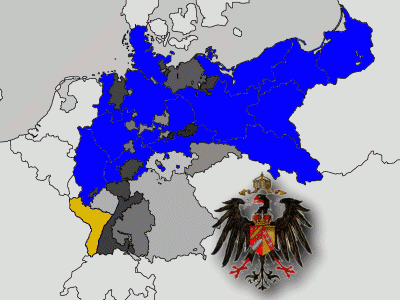
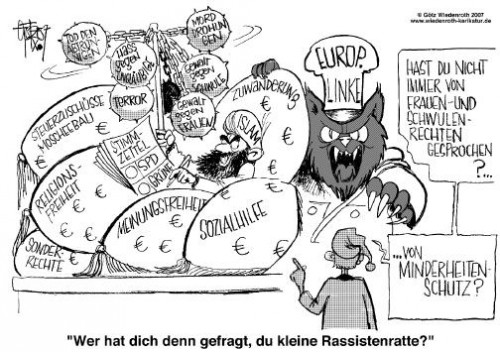

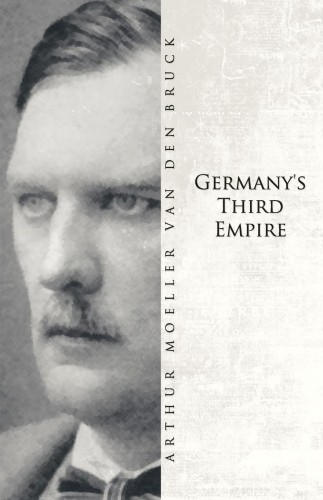
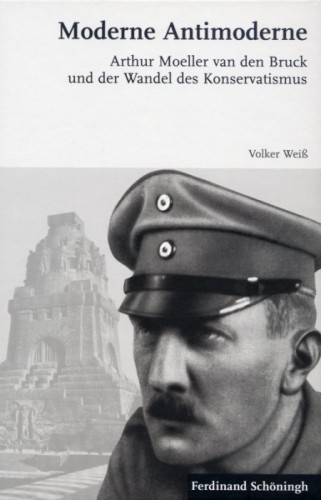
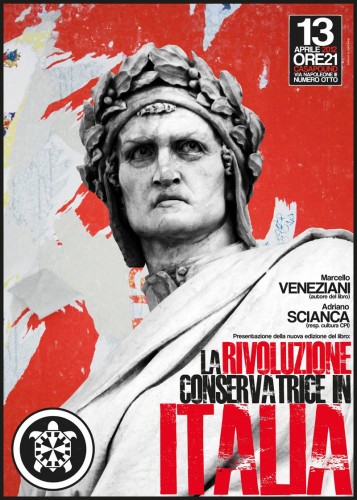
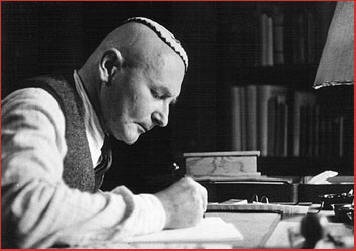









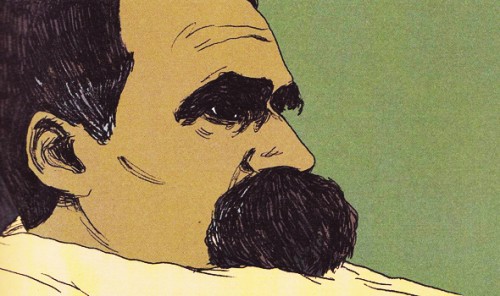
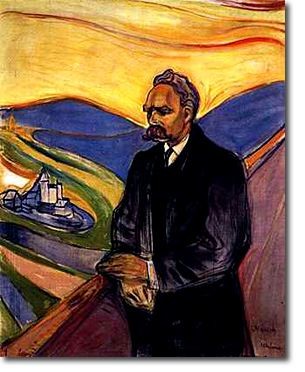 In “The Religious Life” in Human, All Too Human, he follows the latter path to a scathing conclusion: “the saint” is the product of “a sick nature . . . spiritual poverty, faulty knowledge, ruined health, and overexcited nerves.”[11] In other words, the saint is the product of his derelict body and impoverished instincts, and not some metaphysical deity or utopia; just as all behaviors and concepts can be related to the physiological state of their human bearers. This type of analysis served Nietzsche well in his later examinations of the origins of morality. It demonstrates that physiology was not merely a metaphorical platform for explaining human behavior, but in fact, a philoso-scientific way of naturalizing even the most exalted of ethico-behavioral schemes.
In “The Religious Life” in Human, All Too Human, he follows the latter path to a scathing conclusion: “the saint” is the product of “a sick nature . . . spiritual poverty, faulty knowledge, ruined health, and overexcited nerves.”[11] In other words, the saint is the product of his derelict body and impoverished instincts, and not some metaphysical deity or utopia; just as all behaviors and concepts can be related to the physiological state of their human bearers. This type of analysis served Nietzsche well in his later examinations of the origins of morality. It demonstrates that physiology was not merely a metaphorical platform for explaining human behavior, but in fact, a philoso-scientific way of naturalizing even the most exalted of ethico-behavioral schemes.
